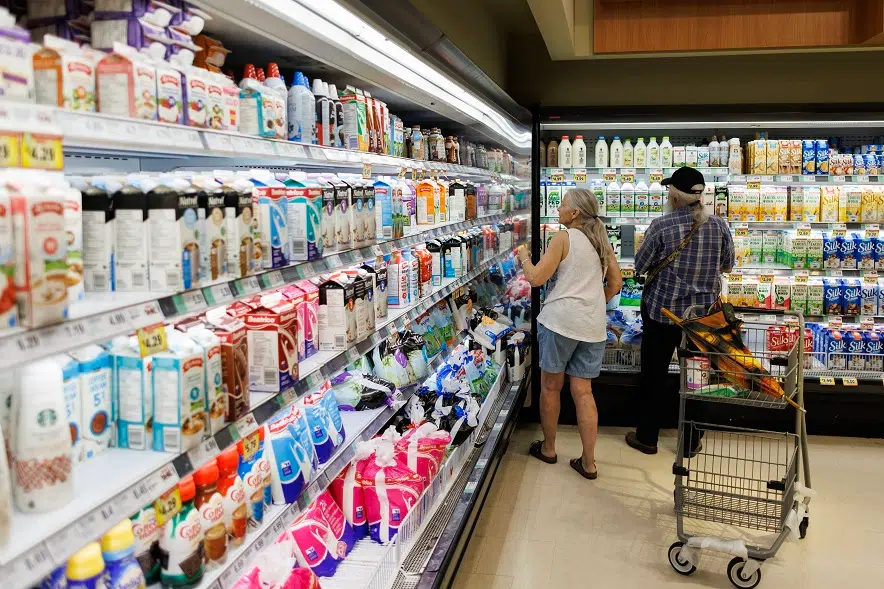Grocery prices continue to affect Canadian families.
Today on Gormley, Canadian food researcher and professor Sylvain Charlebois gave an update on food inflation and the new competition laws in Canada.
Charlebois said the changes are a way of making the Competition Bureau stronger, and that is something that Canada desperately needs.
“A lot of things are happening in the food industry that make Canadians feel unprotected, especially when it comes to price fixing. There are lots of rumours out there; there’s no evidence of profiteering, but certainly there is some unintended coordination when it comes to pricing, and I think it’s important to have a competition bureau that actually really provides oversight on some of these issues,” said Charlebois.
Canada’s 2023 Food Price Report predicted a five to seven per cent cost increase for grocery items like vegetables, dairy and meat. The report forecasted that an average family of four would spend up to $16,288.41 per year on food, an increase of up to $1,065.60 from 2022 data.
Charlebois said he doesn’t believe the federal government will implement any tax measures to force grocers to reduce their prices.
“I just don’t see it happening because then you would just penalize consumers. My guess is that by the end of this week we may actually see Ottawa implementing policies or measures that are easy to implement, which may not impact the industry all that much.
“For example … shrinkflation is essentially a strategy with which you’d reduce quantity, but you don’t reduce price. It annoys a lot of people, and my guess is that perhaps Ottawa will force the industry to label products that have been shrinkflated in the last year or two,” said Charlebois.
According to Charlebois, there is no evidence of profiteering taking place with the five major grocers in Canada. “They’re making money and record profits, which is true, but companies tend to do that with inflation. Profits do go up in terms of amounts, but when you look at food sales, that’s not where their money is; they’re making money with pharmacies, articles, precision drugs, cosmetics, perfumes, and clothing. That’s where the money is right now, so those companies are very diversified, but a lot of politicians fail to mention that whenever they use the infamous word greedflation,” said Charlebois.
Charlebois said that the market is dealing with inflation on its own.
“If you look at food inflation in the last couple of months, the food inflation rate in Canada is coming down. We should finish the year with a food inflation rate of about 5%, and we are expecting the gap between inflation and inflation to be at zero by March, so the market will take care of our food inflation problem,” said Charlebois.











